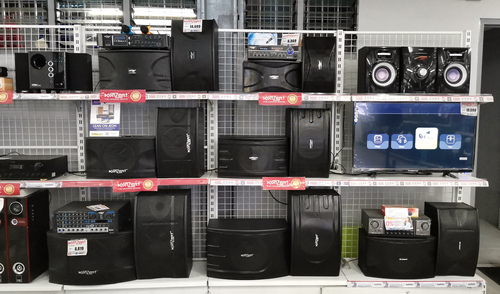Misogynistic rap music in workplace can constitute sex discrimination, 9th Circuit says

Image from Shutterstock.
Sexually derogatory and violent rap music played in the workplace can foster a hostile work environment that constitutes sex discrimination under Title VII of the Civil Rights Act, a federal appeals court has ruled.
In a June 7 opinion, the 9th U.S. Circuit Court of Appeals at San Francisco vacated a decision that held that there was no sex discrimination because the music offended men and women.
“An employer cannot evade liability by cultivating a workplace that is broadly hostile and offensive,” the 9th Circuit said. “Concrete incidents of sex discrimination should not drown in a sea of incivility.”
The appeals court ruled in a lawsuit by seven women and one man against apparel manufacturer S&S Activewear. The suit said the company blasted the music at a warehouse in Reno, Nevada, which served as a catalyst to male workers who made sexually graphic gestures and sexually explicit remarks. The lead plaintiff was Stephanie Sharp.
The 9th Circuit vacated the district court’s dismissal and instructed it to take two factors into account on remand. One factor is that conduct that offends both genders is not a certain bar to a Title VII claim. The second factor is that harassment doesn’t have to be targeted at a particular person to give rise to a Title VII claim.
“Whether sung, shouted or whispered, blasted over speakers or relayed face-to-face, sexist epithets can offend and may transform a workplace into a hostile environment that violates Title VII,” the appeals court said.
Judge M. Margaret McKeown, an appointee of former President Bill Clinton, wrote the 9th Circuit decision. Other judges on the panel were Judge Jay S. Bybee and Judge Patrick J. Bumatay, respectively appointees of former President George W. Bush and former President Donald Trump.
The case is Sharp v. S&S Activewear.
Law.com and Law360 had coverage of the decision.



